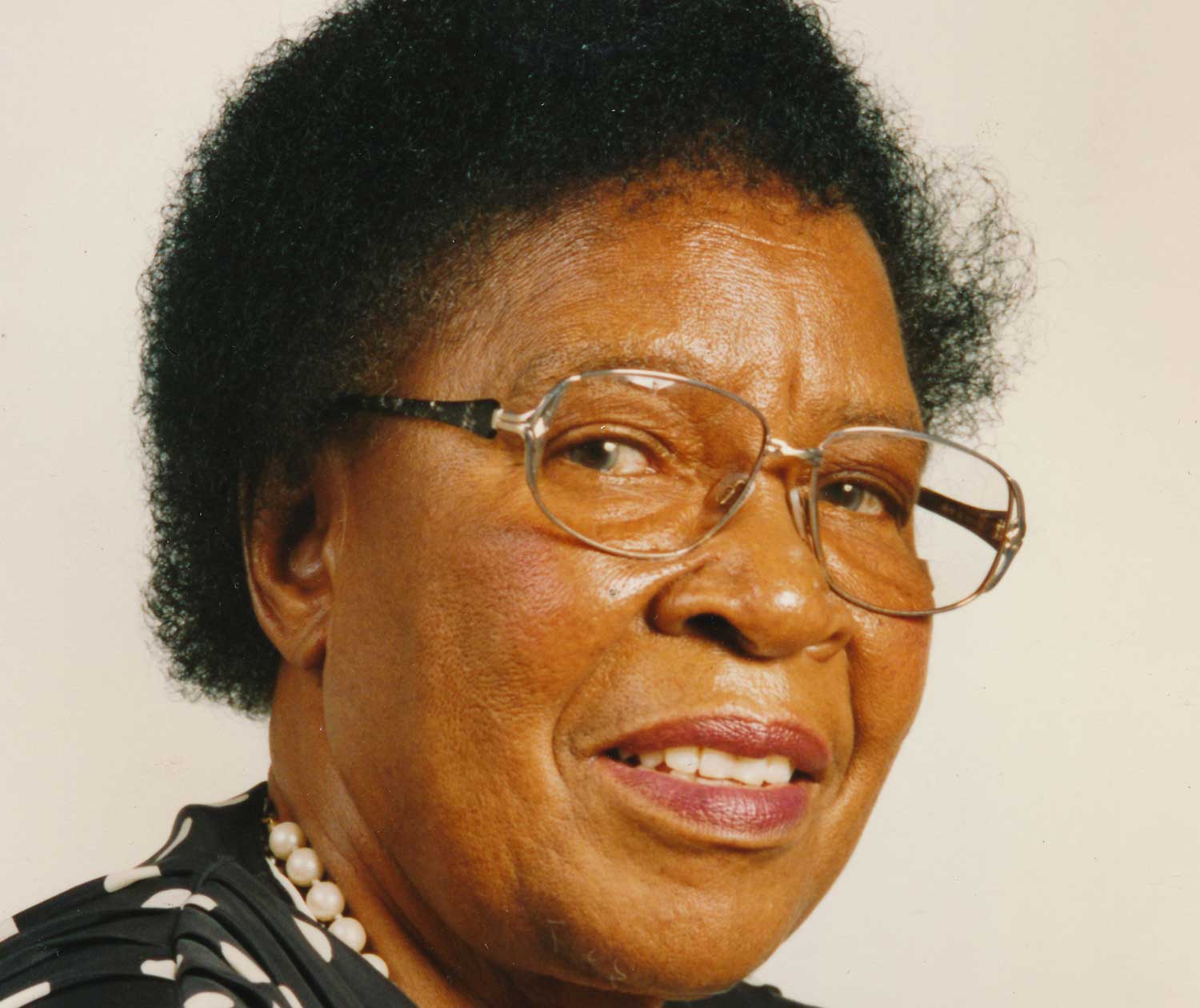Dr Chiepe was High Commissioner for Botswana, High Commissioner to the Federal Republic of Nigeria, and Ambassador to the Federal Republic of Germany and the Kingdoms of Sweden, Denmark and Norway.
A pioneer in many ways, Dr Chiepe’s spectacular career in politics and diplomacy began when she was appointed Education Officer in 1948. The first woman to hold the role, she was also the first Black African woman to graduate with a Bachelor of Science and Diploma of Education from Fort Hare University the year before. Throughout a long and impressive career she defied the odds and challenged a patriarchal system to become a woman of many firsts.
Born in Serowe in the central district of Botswana, Gaositwe was only eight years old when her father died prematurely. He had insisted all five of his children receive an education, including his daughters, but Gaositwe’s uncles – the new heads of family – disagreed. Her mother had to demonstrate sheer determination to ensure her daughter could continue at school, and fortunately Gaositwe finished primary school in Serowe, before moving to South Africa for her secondary and university education.
Having been appointed Education Officer and working in schools across the country, Dr Chiepe was awarded a scholarship from the British Council to study at Bristol, where in 1958 she became the first Motswana woman to attain a Master’s degree. Returning to Botswana, she became increasingly influential in forming the education system in her country, which achieved independence from British colonial rule in 1966.
In the early 1970s Dr Chiepe was appointed High Commissioner to the UK and Nigeria, and she became the first female cabinet member in Botswana when she was elected as a Member of Parliament in 1974. She then went on to several governmental positions, including the Minister of Trade and Industry, Foreign Minister and Minister of Education.
In 1972, Dr Gaositwe Chiepe was awarded an honorary doctorate from the University of Bristol. At her degree ceremony Professor Roger Wilson remarked that she had demonstrated ‘courageous and determined navigation’ throughout her career and honoured her various responsibilities – ‘diplomatic protocol and political judgements, trade, industry and international aid, economics and human rights, public relations and a critical assessment of the course of events in six European countries’ – which, he acknowledged, were done under scrutiny and ‘constant public gaze’ given Dr Chiepe’s position as one of only two women of ambassadorial rank in London at the time. But he concluded: ‘With gentle firmness, shrewd common-sense and total integrity [she] responds to all the challenges’.
Dr Chiepe retired from public service in 1999 after nearly 30 years of high-level roles and was awarded an honorary degree from the University of Botswana in 2009 for her outstanding work in the development of the country.
In one of her final public engagements, Dr Gaositwe Chiepe was the keynote speaker at Botswana’s International Day of Older Persons, where she said: ‘We want to be the aged in counsel and the young in action. Let us, as the elderly, not be relegated to being dinosaurs but utilize our knowledge and hard-earned wisdom to not only increase our relevance and longevity in society, but also increase the contact between the generations, bridging the gap between young and old’.
